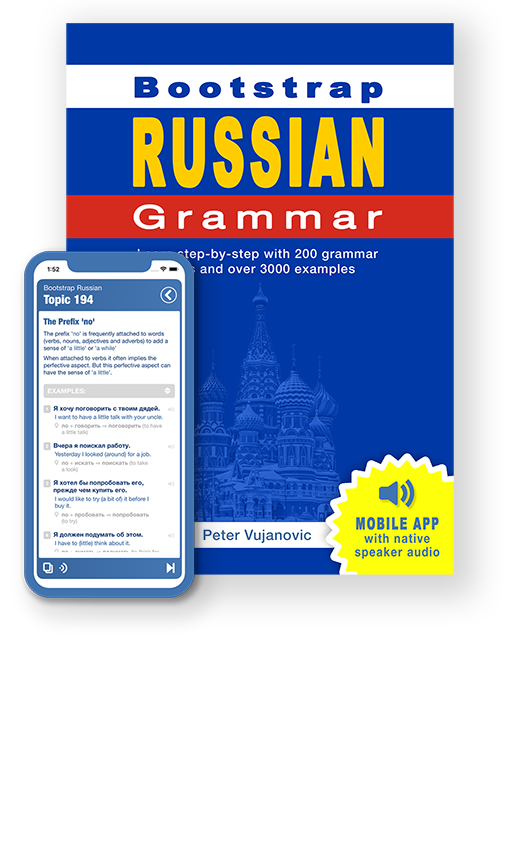Russian grammar - Short-form adjectives |
|||
|
|||
Short-form adjectives are used for a temporal condition or limited quality, while long-form adjectives refer to an innate character. Short-forms change only by gender and number; and not by case. Masculine (singular) adjectives – just remove the final vowels: • Examples: хороший ⇒ хорош; красивый ⇒ красив; милый ⇒ мил Feminine, neuter and plural adjectives – remove the last letter: • Examples: хорошая ⇒ хороша (feminine); красивое ⇒ красиво (neuter); милые ⇒ милы (plural). Note that some masculine adjectives become too hard to pronounce when the final vowels are dropped. In this case you should add о before the last к (редкий ⇒ редок) , and е before the last н (важный ⇒ важен). |
| Examples: | |
|
Павел согласен.
Pavel is in agreement.
|
|
|
Ольга печальна.
Olga is sad.
|
|
|
Это место занято.
This place is occupied (busy).
|
|
|
Его поступок просто низок.
His act is simply low.
|
|
|
Этот маршрут очень труден.
This trail is very hard.
|
|
|
Эта проблема очень важна.
This problem is very important
|
|
|
Он мил, а она не мила.
He is nice but she is not nice.
|
|
|
Сегодня день довольно хорош.
Today is a pretty good day.
|
|
|
Этот шаг не важен, а эти шаги важны.
This step is not important, but these steps are important.
|
|
|
План короток и прост.
The plan is short and simple.
|
|
|
Здесь дождь очень редок.
Here rain is very rare (uncommon).
|
|
|
Я не болен, всё нормально.
I am not sick, everything is fine.
|
|
|
Она тоже больна, как и её подруга.
She is also sick, like (and) her (own) friend.
|
|
|
Мария очень счастлива, а Ольга очень печальна.
Maria is very happy, but Olga is very sad.
|
|
|
Музей закрыт, а кинотеатр открыт.
The museum is closed, but the cinema is open.
|
|
|
Студенты молоды и веселы.
Students are young and cheerful.
|
|
|
Она мила; она похожа на ангела в этом костюме.
She is cute; she looks like an angel in that costume.
|
|
|
Снежные дни прекрасны.
Snowy days are wonderful.
|
|
|
Вода нужна. И воздух нужен.
Water is necessary. And air is necessary.
|
|
 |
|


 Masc. singular:
Masc. singular: 
